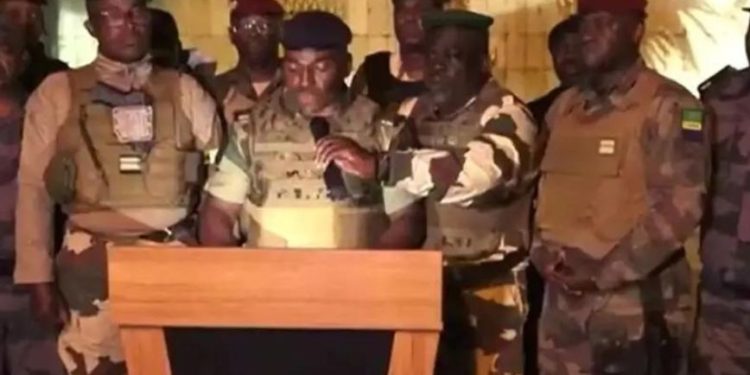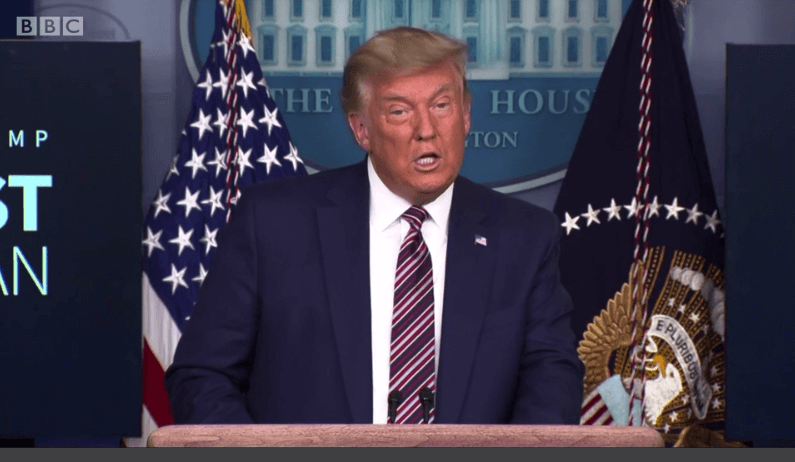Gabonese military officers have made a televised announcement on national TV, asserting that they have assumed control of the government. Their declaration involved annulling the outcome of the recent election held on Saturday, in which President Ali Bongo had been declared the victor. The electoral commission had reported that Bongo secured just under two-thirds of the votes, but the opposition claimed the election was marred by fraud. If successful, this would terminate the Bongo family’s 53-year reign in Gabon. The country, a significant oil producer in Africa, boasts extensive forest cover encompassing nearly 90% of its land.
Early on Wednesday morning, twelve soldiers appeared on television, revealing their intention to invalidate the election results and dissolve all governmental institutions. They also communicated the closure of the country’s borders until further notice. This development, if substantiated, would mark the eighth coup in former French colonies in Africa over the past three years. However, most of these previous occurrences have been concentrated further north in the Sahel region, where insurgent activities have prompted concerns about the protection of civilian populations under democratically elected governments.
Read Also: DSS arrests Ogun Assembly member-elect, Dre, over Sagamu mayhem
French Prime Minister Elisabeth Borne expressed France’s close monitoring of the situation, while the European Union’s foreign policy leader warned that a military takeover could heighten instability in Africa. Simultaneously, French mining company Eramet, a major employer in Gabon, declared the suspension of all operations in the country due to security considerations.
The military officers who proclaimed this apparent coup identified themselves as members of the Committee of Transition and the Restoration of Institutions, representing the security and defense forces. A soldier speaking on Gabon 24 TV stated their motive was to safeguard peace by terminating the existing regime, which they attributed to reckless and unpredictable governance causing societal disintegration that risked pushing the nation into chaos.
Gunfire sounds reverberated in the capital city, Libreville, after the broadcast, indicating potential resistance to the coup. The government did not offer an immediate response to the soldiers’ declaration, and the whereabouts of President Ali Bongo remained unknown. Internet access, which was suspended after the election, was restored after the takeover, but a curfew was put in place.
Read Also: Tinubu traveled for vacation, not ill – Onanuga
Concerns about the election process in Gabon were present as in previous general elections. Opposition candidate Albert Ondo Ossa raised objections about insufficient ballot papers with his name at polling stations. Additionally, the coalition he represented noted the inclusion of withdrawn candidates’ names on the ballot. Reporters Without Borders reported that foreign media had been barred from entering the country to cover the election.
President Ali Bongo’s prior victories were contested by opponents as fraudulent. This time, alterations were made to voting materials shortly before the election, adding to the controversy. Bongo ascended to power following the death of his father, Omar, in 2009. In 2018, he suffered a stroke that sidelined him for nearly a year, prompting calls for his resignation. The subsequent year saw a failed coup attempt that resulted in imprisoned mutinying soldiers.








